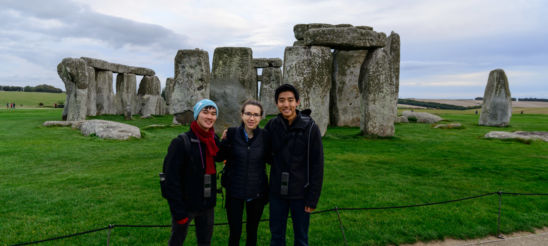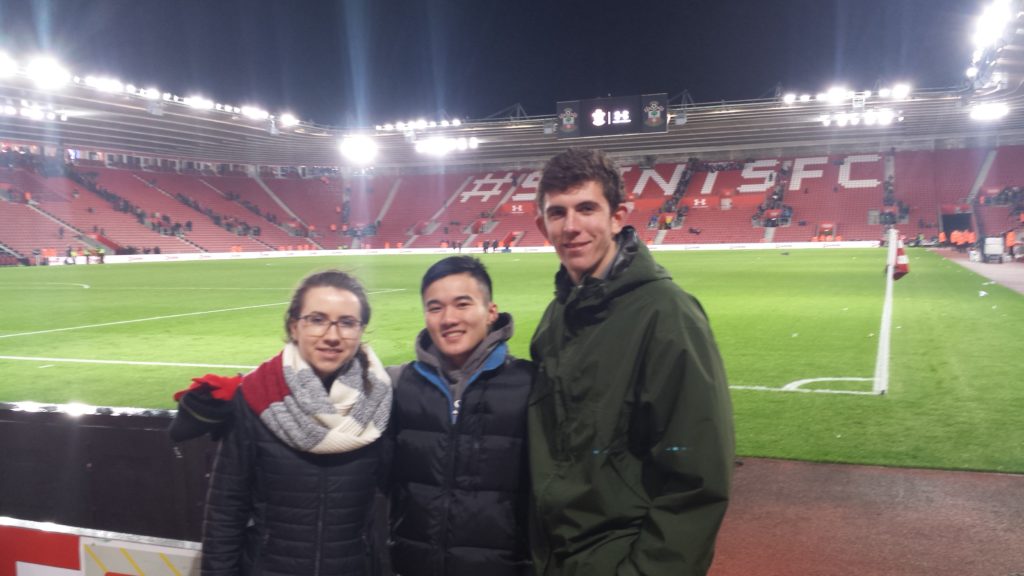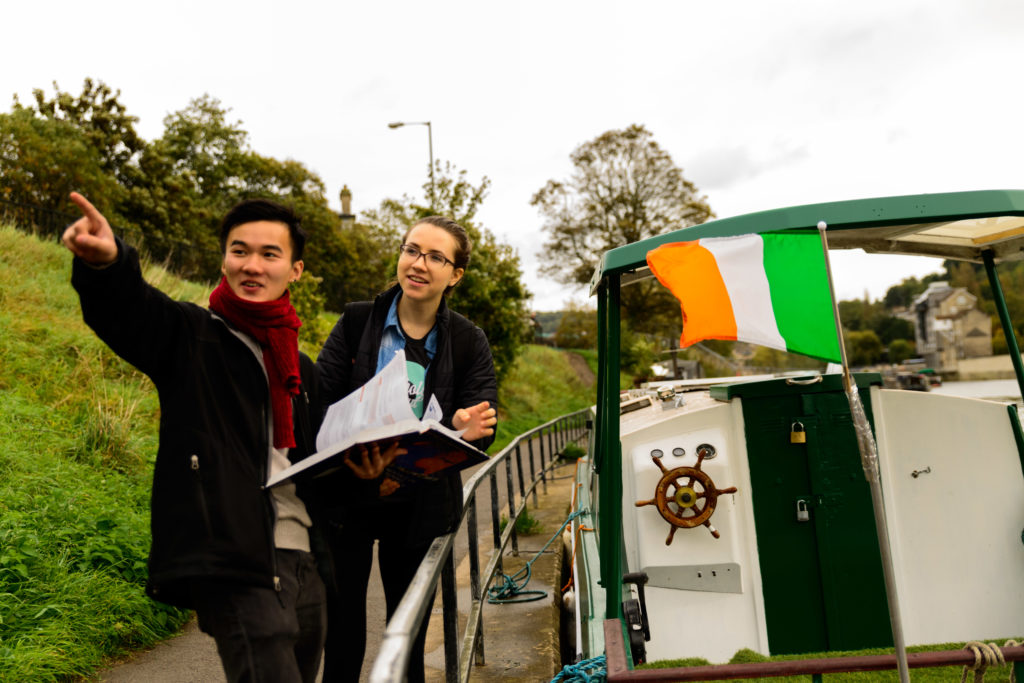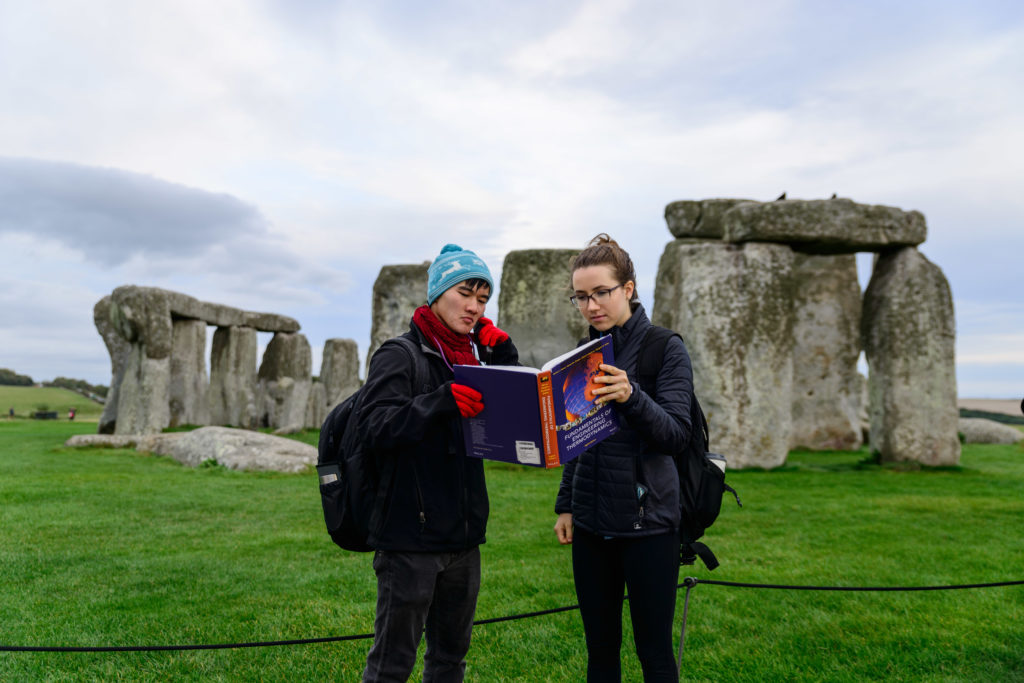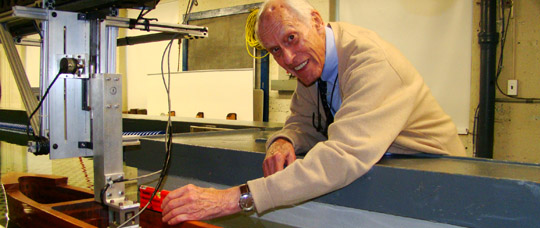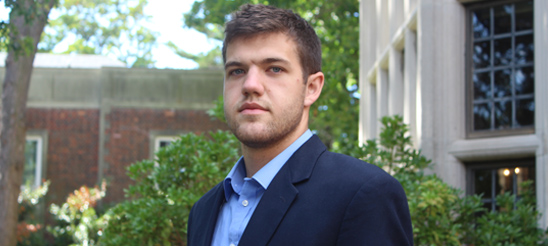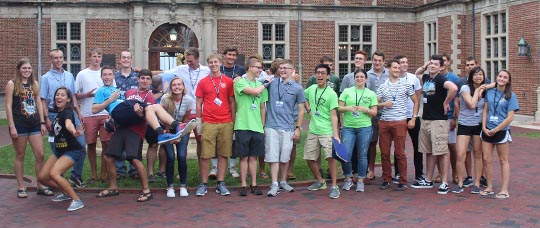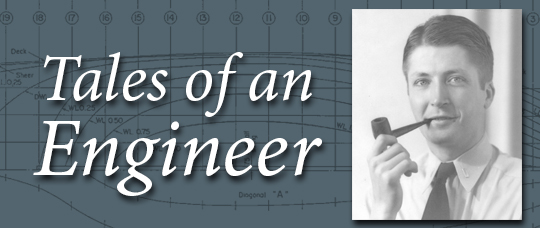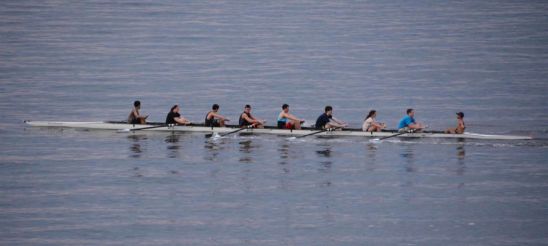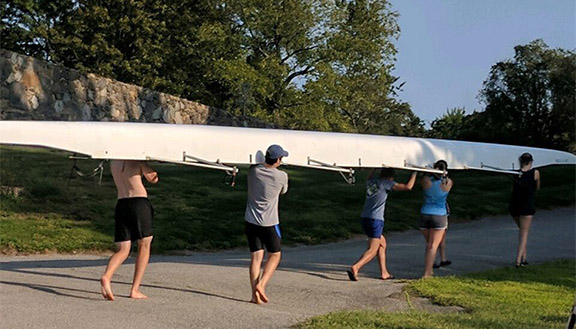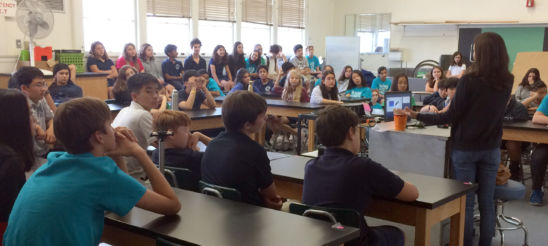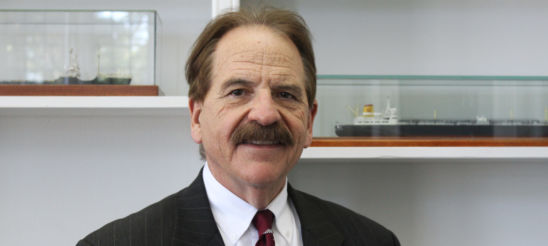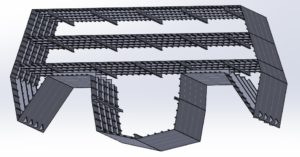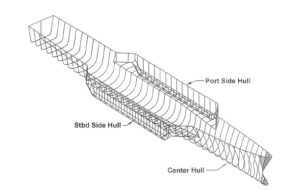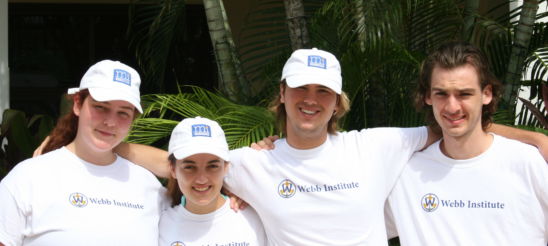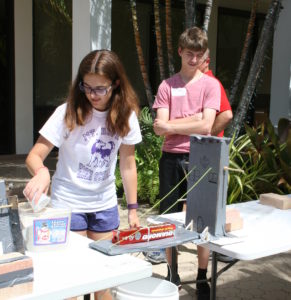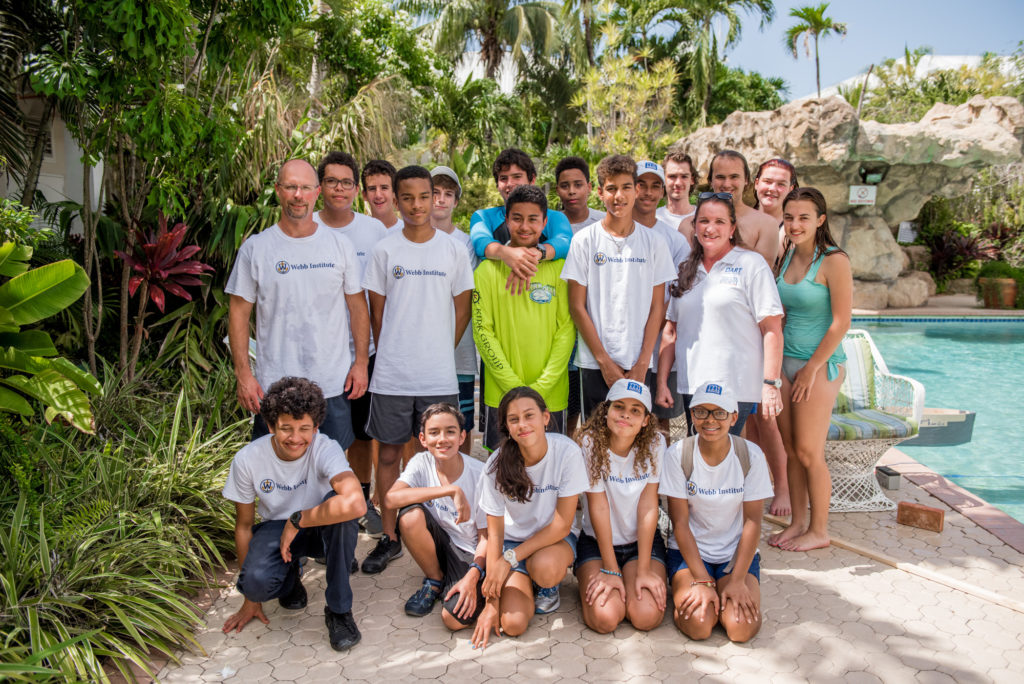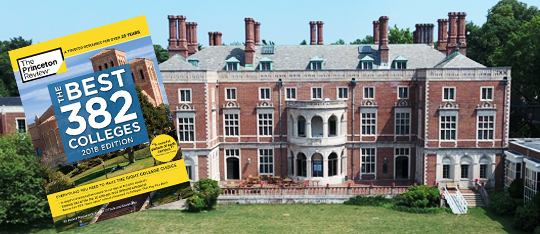By Jonathan Wang ’20, Galen Ng ’20, Mary McGuinness ’20, and Max Pierce ’20
Five months, four Webbies, a foreign country, and a mission to meet Ed Sheeran, eat the best fish and chips in England, get hired at Lloyd’s Register, marry into the Royal Family, make it to class on time.
Southampton University, with a Webb factor of roughly 240, is proving to be a bit of a college culture shock for the four of us. Here, we are slowly learning how to be real people and behave in social situations that are not comprised of only Webbies. And even though we would do questionable things to have Chef Wiener fly here to cook for us, we are very excited to be across the pond broadening our perspective and learning Ship Science just steps away from Lloyd’s Register.
It has only been three weeks in England so far, and while we have not met the Queen yet, we have learned a few things while here:
- Southampton has neat ships: We discovered this at the Southampton Boat Show. We also gained a taste for luxury, seven-figure yachts. After stepping aboard the biggest and most luxurious yachts on display, we are now hoping to spend Sea Term sailing on a megayacht.
- Boldrewood Innovation Campus is pretty awesome: As Shippies here at Southampton, some of our classes are located at a new campus called Boldrewood. The modern looking campus is brand new and has buildings for the university and Lloyd’s Register. It does not disappoint inside either as it is home to a 138-meter towing tank, UAV labs, and a large computer lab which we’ve used to learn FEA and CFD.
- Walking is hard: Traveling to classes has been one of the biggest changes for us. When a class finishes, we must gather our belongings and walk across the campus to the next lecture hall. We also often have classes at other campuses, which means walking an additional 0.8 miles each way. Gone are the days of rolling out of bed at 8:59 AM and hightailing it into the classroom or napping between classes. We now have to factor in half an hour in the morning to get from our dorm to classes
- We are in more societies than just SNAME: From Cake Decorating Society to Actuarial Science, there’s a society for just about anything. Between the four of us, we’ve joined societies including Break Dancing, Water Polo, Athletics and Cross Country, and Pottery.
- The Bubonic Plague a.k.a. Fresher’s Flu was never actually eradicated: Turns out when you squeeze hundreds of freshers together in dorms and lecture halls, the flu spreads like wildfire. We’ve all been sick to some degree, and the frequency of coughs in lectures is at about 3 seconds right now. Hooray for the Cough Choir!
- Stonehenge rock: Although it is smaller than it appears to be on the cover of National Geographic, it is still impressive when you consider the builders somehow managed to stack some massive rocks on top of each other. While visiting Bath before Stonehenge, we admired the architecture, toured some beautiful churches, and most importantly, had English tea. Mary particularly enjoyed the jam, Jonathan feasted on the clotted cream (to Galen’s disgust), and Galen devoured a peanut butter fudge brownie. On the trip, we also saw the beautiful English countryside and many sheep.
- Chef Weiner is a blessing: We took the lazy route and chose a part-catered meal plan instead of cooking all our meals. Frankly, the food served in our dorm leaves much to be desired. It is just not the same as Chef Weiner’s meals. Just thinking about all day bagels, cereal parties, fruit, and the salad bar brings tears to our eyes. We miss it all.
Of course, we are here at Southampton to study. To make sure everyone back at Webb knows we are not slacking off, we have evidence of our studiousness.
In Memoriam – Professor Emeritus Jacques Hadler
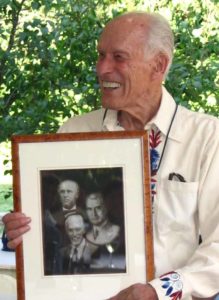 During the early morning hours of Thursday, October 19th 2017, we lost a beloved friend. Professor Emeritus Jacques Hadler will be sorely missed on the Webb Institute campus.
During the early morning hours of Thursday, October 19th 2017, we lost a beloved friend. Professor Emeritus Jacques Hadler will be sorely missed on the Webb Institute campus.
Falling ill in the spring, requiring hospitalization and then physical rehabilitation, Professor Hadler moved home to Maryland in June. Continuing his physical rehabilitation there, he regained strength and was enjoying time with his family. He was with his family as he passed.
Professor Hadler came to Webb as Director of Research from 1979 and 1983; was Dean from 1983 and1987 and again from 1991 and 1998. He was the J. J. Henry Professor of Naval Architecture from 1989-2001. Webb Institute awarded him an honorary Doctor of Science degree in 1993, the highest honor Webb can bestow. Professor Hadler taught a countless number of students over his time at Webb, once being referred to as a Propeller God.
Tyler Gray-Hoehn ’18 Awarded Thomas B. Crowley Sr. Memorial Scholarship
On Wednesday, October 18, 2017, Webb Institute announced the 2017-18 recipient of the Thomas B. Crowley Sr. Memorial Scholarship by Crowley Maritime Corp., The Webb’s scholarship selection committee chose Tyler Gray-Hoehn (Class of 2018) from Brookfield, Wisconsin, for his hard work, academic excellence and superb leadership skills that he actively displays on and off campus.
Throughout his time at Webb Institute, Tyler has been very active in student government and community projects because of his love for Webb and his desire to give back. This year, Tyler is the Senior Class President, as well as the Vice President of the Student Organization (SO). He has also been Webb’s Motor Boat Chair, Van Chair, and a member of the Honor Council. In addition to his campus leadership roles, Tyler is active in Webb’s athletics, playing on both the soccer and volleyball teams. Tyler says his involvement in campus activities and leadership at Webb have taught him invaluable lessons that will benefit him in his professional and personal life forever. Unlike most Webb graduates, Tyler plans to be a merchant mariner after commencement.
“Tyler is a great asset to the Webb community,” said Dean Matthew Werner. “He has stood out as a leader in the student body since setting foot on campus three years ago. His commitment and passion for Webb is admirable, as is his drive to make Webb a better place through his own actions. I feel that Tyler’s record of achievement at Webb reflects what the Crowley Scholarship seeks to recognize.”
“The Thomas B. Crowley Sr. Memorial Scholarship Program provides assistance to Webb students who demonstrate attributes that both Crowley and Webb hold in high esteem – leadership, service, and commitment to the maritime industry,” said President R. Keith Michel. “We are most appreciative of Crowley’s ongoing commitment to higher education and honored to continue our partnership with Crowley Maritime Corp.”
Since 1984, Crowley has provided more than $3 million dollars in scholarship funding for more than 1,000 students. The company has also donated more than $2 million over the years to support other educational programs. In 1994, Chairman and CEO Tom Crowley Jr. established the Thomas B. Crowley Sr. Memorial Scholarship Program in honor of his father who led the company to extraordinary heights before passing away in 1994. The company continues to give scholarship dollars to deserving students in the U.S., Alaska and Puerto Rico. In 2006, the program was expanded to Central America, and to date has provided financial assistance to more than 20 students in that region.
About Crowley
Jacksonville-based Crowley Holdings Inc., a holding company of the 125-year-old Crowley Maritime Corporation, is a privately held family and employee-owned company. The company provides project solutions, energy and logistics services in domestic and international markets by means of six operating lines of business: Puerto Rico/Caribbean Liner Services, Latin America Liner Services, Logistics Services, Petroleum Services, Marine Services and Technical Services. Offered within these operating lines of business are: liner container shipping, logistics, contract towing and transportation; ship assist and escort; energy support; salvage and emergency response through its 50 percent ownership in Ardent Global; vessel management; vessel construction and naval architecture through its Jensen Maritime subsidiary; government services, and petroleum and chemical transportation, distribution and sales.
Webb Welcomes the Class of 2021
On Tuesday, August 15, 2017, twenty-eight students from across the Country joined the Webb’s Class of 2021, eager to take on the Webb challenge. This active and talented group of individuals bring a variety of impressive skills and hobbies to Webb.
During their high school careers, 93% were athletes, 75% participated in community service, 64% participated in performing arts, and 32% competed in FIRST Robotics and other competitive robotics teams. In addition to those activities, member of the Class of 2021 have some unique achievements including: constructing a 14-foot sailing catamaran, climbing Mount Whitney, building a go-kart, bee and butterfly keeping, hiking the Long Trial and Appalachian Trial, and being a tri-athlete.
Since their week-long orientation back in August, the Class of 2021 have quickly integrated themselves into Webb’s unique community and become full-fledged “Webbies.” Many students have already joined athletic teams, participated in student leadership, joined in on community service projects, and attended on and off-campus activities.
In mid-September, the Class of 2021 and their families celebrated the start of the Fall Semester during Webb’s annual Family Weekend. Students and their loved ones spent the weekend enjoying the various activities Webb had planned, including an ice cream social, BBQ luncheon, Jazz Band and WooFS performances, a competitive soccer game, brunch, and the grand finale, the Freshman Boat Competition. The Class of 2021 excelled in their race, with all student vessels successfully floating on the sound. The “Purple Team” made up of Alex Koziol, Maggie Maguire, Dillion Esposito-Kelley, and Chris Merola, were the victors.
Webb looks forward to learning more about the Class of 2021 and is eager to see what they accomplish in their first year aboard.
Photos from this year’s Orientation and Family Weekend are available on Smugmug.
Tales of an Engineer
Harrison T. Loeser ’43, the oldest living alumni of Webb Institute of Naval Architecture, has written a book of vignettes of events that have occurred over the course of his career as a naval architect and marine engineer.
His career began in 1943 as Assistant Superintendent at the U. S. Naval Shipyard in Pearl Harbor, repairing damaged vessels in the Pacific Theater. After the war, he accepted a position designing military and merchant ships at Bethlehem Steel in Quincy, MA. He was next tapped by Electric Boat to take a MS in Naval Architecture and Marine Engineering at MIT with courses in nuclear engineering to prepare him for overseeing the design of the reactor shield tank for the first nuclear-powered submarine – the USS Nautilus, the first vessel to go underneath the North Pole.
He continued at Electric Boat working on submarine design, such as the USS Skate which was the first vessel to surface at the North Pole. He later moved over to the Naval Underwater Systems Center (NUSC) where he was in charge of the the Mobile Acoustic Communications System (MACS) project which involved installing acoustic equipment on the de-commissioned Nautilus to obtain fundamental data on long range propagation of sound. After retiring, Loeser publishes two books on acoustics, Sonar Engineering Handbook and The Fundamentals of Ship Acoustics.
Tales of an Engineer begins with a story about his sophomore Winter Term experience on a freighter headed for Rio. Other stories recall instances while working on the USS Skate and shepherding the development of the “Submarine – Test and Research (STAR)” series of one-man submarines during his tenure at Electric Boat.
Loeser has stories of his year as Science Advisor to the U. S. Navy’s Second Fleet and a stint as a consultant for students at the Newport War College, where he designed the “Free World Frigate” to their criteria, which caught the eye of the U.S.N. Chief of Naval Operations.
The publisher, his daughter Jane Loeser Clukay, hopes it will encourage others to write down stories from their careers and to give Webb undergraduates an opportunity to get a glimpse of one alum’s adventures in the field they are embarking on, as well as, inspiring those interested in research to advance the field. Loeser also has two sons who also graduated from Webb Institute, Christopher T. Loeser ’70 and Douglas Douglas J. Loeser ’73.
The book is available free online, thanks to Webb Institute. The 60-page soft cover, perfect bound book can be obtained by sending a check for $10.00 plus $2.50 shipping and handling to The Proper Exposure at P.O. Box 1070, New London, CT 06320.
Webb’s Rowing Club Grows
By Alexander Bidwell ’21, Rowing Team Captain
Webb Institute Crew has kicked off its fifth season with a great first round of practices. Over the past few weeks we’ve had strong turnouts of both experienced and novice rowers. Although the program is in its infancy, we are fortunate to have several dedicated members eager to share their love of rowing by helping coach fellow teammates. The program currently has basic equipment including one set of sweep oars, slings, and two Vespoli 8+ (8 man + cox) rowing shells. This equipment was donated to Webb and has enabled us to get the program started.
While our 8+ shells are working well, they are not ideal for a program of our size. A 4+ shell would greatly benefit our team, allowing us to practice more frequently and possibly introduce sculling to more experienced rowers. In addition, a 4+ would provide more flexibility when coordinating races and scrimmages. We are also interested in acquiring a 2-man shell.
If you have a 2 or 4+ shell you are interested in donating to Webb’s rowing program, please contact President Michel at ude.bbew@lehcimk or 516 671-2277. Your contribution of such a vessel may qualify as a charitable tax deduction.
Leah Sosa ’08 Teaches Reed Middle School Students About Hydrodynamics, Webb Institute
This September, Webb Alumna and Hydrodynamicist Leah Sosa ’08 visited science classes at Walter Reed Middle School in North Hollywood, California. Sosa, who graduated from Walter Reed M.S. in 1997, shared her experiences at Webb Institute and on the job in the STEM field of Hydrodynamics.
Following are some excerpts from student responses, thanking Leah for her visit to their classes:
“Thank you so much for taking time out of your day to come talk to us! It was very cool to see what a former IHPer can do with her life and it made me think about my future. The Webb Institute seems like an amazing school with an incredible experience, and it is very helpful that it is tuition free. I also thought that it was very interesting to see one of the experiments you did. Science experiments are super fun at school, and to see them being applied to real life is awesome! Your presentation made me dream of big things to accomplish when I get older and have a job.” – Amelie Missig’18
“Your presentation showed me that if you focus on your academic career, you can go to new and unexpected places, especially if you are unsure what you want to do later in life. I was shown first-hand that, as opportunities arise, your expectations and plans can drastically change – even lead you to another country.” – Enzo Banal’18
“It really opened my eyes about thinking for my future. Like, which college I want to go to, what I should major in, and what job I want. Your section about Webb Institute made me remember that there are schools other than UCLA, Stanford, Harvard, and other popular schools. Your presentation, how you really were not sure what you wanted, reminded me of myself. I am going to research jobs and colleges to get ready.” – Caira Paredes’18
“I was fascinated by the fact that you went to a college that had waived tuition so that you would not have to pay for college. The presentation made me think about how I will soon go to visit colleges and universities, and it will only be a matter of time before I start applying for them.” – Jeffrey Kwon’18
Webb Professor to Present Paper at FAST 2017 Conference in France
Webb Institute Professor John C. Daidola, P.E. will be presenting a paper on large trimaran ship structural design at the FAST 2017 conference in Nantes, France, September 27-29, 2017.
The meeting is considered the world’s leading conference addressing fast sea transportation and is a biannual event on research for design, construction and operation of these systems, both naval and commercial. The first conference, which was held in Trondheim, Norway in 1991.
Dr. Daidola’ s work has focused on structural design characteristics obtained from alternative procedures based on classification society rules for monohulls and trimarans as well as more traditional naval based design approaches for monohulls. His paper at the meeting will focus on evaluating the resultant structural designs by applying an analytical approach embodying finite grillage models of the hull structure.
This work was supported by the Office of Naval Research (ONR) under grant no. N00014-10-1-0652.
See Dr. Daidola’s designs below.
Renee Tremblay ’20 Travels to Cayman Islands as SEA Counselor
by Renee Tremblay ’20
This past summer, I had the opportunity to work as a counselor at Webb’s Summer Engineering Academy (SEA), led by Dean Matthew Werner. I chose to spend my summer with Webb because I enjoy leading projects for kids, and helping others discover engineering. During the month of July, I lived on campus, helped run the weekday camp at Webb, and introduced young students to engineering with many fun, hands-on projects and team competitions.
When I signed up to be a camp counselor, I had no idea I would end up on an island paradise for a week, as a part of SEA. At the close of freshman year, I learned that the SEA program was going abroad to the Cayman Islands. After the two busy, tiring-but-worth-it sessions with about 35 campers at Webb, I hopped on a plane bound for George Town, Grand Cayman for one more week of teaching and enjoyment with three of my classmates, Ian Cavanaugh ’20, John Dixon ’20, and Isabel Hill ’20. We were kindly set up in a fantastic condo on the beach, in walking distance of the venue where we would work during the week.
Before the program got started, I got to explore the island, relax on the beach, snorkel, and swim with stingrays! On Monday morning, we headed into work early to set up and anxiously await the arrival of the 15 local scholars who we were going to work with. The SEA students each wrote an essay, and were selected by Minds Inspired, a scholarship provider funded by the Dart Group, that focuses on fostering excellence in science and math in Caymanian students. Once the students arrived, we were greeted by a multitude of different accents and great personalities. The group was incredibly focused, and excited to be part of the program.
The week combined classroom time with various design and build projects, all leading up to the capstone, boat-building, team competition. The materials for the project included a sheet of plywood, cable ties, duct tape, silicone sealant, wiring, switches, and motors. From these materials, teams had to construct a brick-carrying boat to race around in a pool in various competitions. The boat race is my favorite project because it really challenged the students in naval architecture, a field they previously did not know a lot about. It’s unfortunate that boat design and engineering are not well known in the Cayman Islands, where most goods arrive by sea.
I think the SEA program really benefited the students who were involved, and I hope it inspires them to explore various fields of engineering in their future academic careers. I hope this trial run of the Summer Engineering Academy in the Cayman Islands plants the seed that allows the program to continue to grow there in the future. Special thanks to Chairman of the Board Bruce Rosenblatt for connecting Webb with the Dart Group and Minds Inspired and to the Dart Group for arranging the SEA program in the Cayman Islands and for hosting us during our stay.
Minds Inspired SEA Cayman Video
Webb Institute Featured in The Princeton Review Book, “The Best 382 Colleges: 2018 Edition”
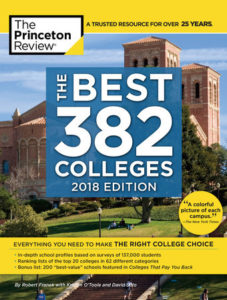 Webb Institute is one of the nation’s best institutions for undergraduate education, according to The Princeton Review. The education services company features the school in the new 2018 edition of its college guide, “The Best 382 Colleges” (Penguin Random House / Princeton Review, $24.99, August 1, 2017).
Webb Institute is one of the nation’s best institutions for undergraduate education, according to The Princeton Review. The education services company features the school in the new 2018 edition of its college guide, “The Best 382 Colleges” (Penguin Random House / Princeton Review, $24.99, August 1, 2017).
Only about 15% of America’s 2,500 four-year colleges and two colleges outside the U.S. are profiled in the book, which is one of The Princeton Review’s most popular guides. Published annually since 1992, it has detailed profiles of the colleges with rating scores in eight categories. The book also has ranking lists of top 20 schools in 62 categories. All of the ranking lists are based on The Princeton Review’s surveys of students attending the colleges.
“We chose Webb Institute for this book because it offers outstanding academics, “said Robert Franek, Princeton Review’s Editor-in-Chief and author of “The Best 382 Colleges”. “Our selections are primarily based on our surveys of administrators at several hundred four-year colleges. We also visit dozens of colleges each year and give considerable weight to opinions of our staff and our 24-member National College Counselor Advisory Board, most importantly, we look at valuable feedback we get from each school’s customers – our surveys of students attending them. We also keep a wide representation of colleges in the book by region, size, selectivity and character.”
President R. Keith Michel comments, “We are pleased that the Princeton Review has again acknowledged Webb’s commitment to excellence in education, by selecting Webb as one of its 382 Best Colleges.”
In its profile on Webb Institute, The Princeton Review praises it for its “100 job placement rate” and quotes extensively from Webb students the company surveyed for the book. Among their comments: “The curriculum is “intense,” but the academics tie in well with the winter work terms: “Work terms give each student a feel for industry sectors and allow them to make improved career decisions when selecting a first job.”
The Princeton Review does not rank the colleges from 1 to 382 in any category. Instead it uses students’ ratings of their schools to compile 62 ranking lists of top 20 colleges in the book in various categories. The lists in this edition are entirely based on The Princeton Review’s survey of 137,000 students (358 per campus on average) attending the colleges. The 80-question survey asks students to rate their schools on several topics and report on their campus experiences at them. Topics range from their assessments of their professors as teachers to opinions about their school’s career services. The Princeton Review explains the basis for each ranking list at http://www.princetonreview.com/college-rankings/ranking-methodology.
Webb Institute is on the following ranking lists in “The Best 382 Colleges”: Best Career Services, Most Accessible Professors, and Students Study the Most.
The schools in “The Best 382 Colleges” also have rating scores in eight categories. The Princeton Review tallied them based on institutional data it collected during the 2016 -17 academic year and/or its student survey for the book. Rating scores are on a scale of 60 to 99. Categories include: Academics, Admissions Selectivity, Financial Aid, Fire Safety, and Green, a measure of school’s commitment to the sustainability and the environment in its policies, practices and education programs. Among the ratings in the Webb profile are scores of 98 for Academics and 94 for Quality of Life. The Princeton Review explains the basis for each rating score in the book and at http://www.princetonreview.com/college-rankings/college-ratings.
In a “Survey Says” sidebar in the book’s profile on Webb Institute, The Princeton Review lists topics that Webb students surveyed for the book were in most agreement about in their answers to survey questions. The list includes: “students are happy,” “career services are great,” and “internships are widely available.”

